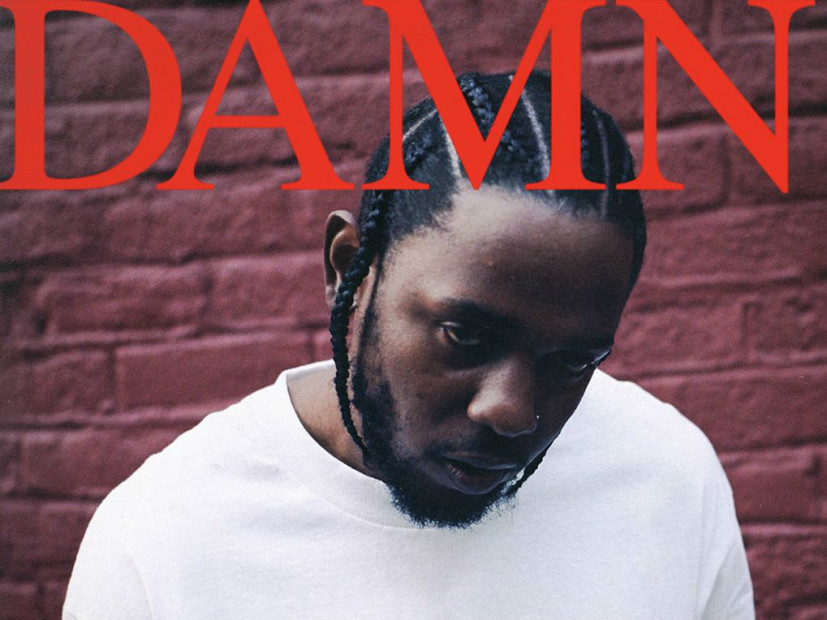Kendrick cements spot among the best
Special To / The Advocate
Apr 19, 2017
The hottest lyricist in the game, Kendrick Lamar, just released his third exceptional album solidifying why he’s so “damn” good.
Released on April 14, “DAMN.” is a 14-track emotional body of art drenched in philosophical lyrics, clever rhyme schemes and raw storytelling over a variety of beats taking inspiration from jazz, funk, cloud rap and modern trap music. Kendrick delivers everything fans have come to love and expect from record label Top Dawg Entertainment’s leading act.
Fans patiently waited as rap peasants ran amok releasing average songs with basic lyrics during the Compton King’s hiatus from the rap game. Was the wait for “DAMN.” worth it? Damn right it was.
The follow-up to Lamar’s platinum-certified “To Pimp a Butterfly” (TPAB) eliminates the need for a skip button. Each track is as bold as its capitalized title by fearlessly exploring concepts that most other artists consider taboo.
Kendrick bravely bares it all and shares his views on contentious topics like religion, politics, police brutality and the complexities of human nature over the wide range of the head-banging production. The Compton-born rapper combined the better qualities of his previous two albums, “Good Kid M.A.A.D. City” and “TPAB,” to create undoubtedly his best project thus far.
“DAMN.” opens with the track “BLOOD.,” a cinematic tale carried by lush violin strings and subtle bass drums with narration by Lamar. This track serves as the opening to the album’s narrative. As the story reaches its climax, the soothing melody ends abruptly with the clap of a gunshot that launches listeners into the heavy-hitting banger “DNA.”
Submerged in a thumping 808 bass line, Kendrick uses “DNA.” to brilliantly address the struggle of being sold a version of yourself by society’s perceptions and fighting against it to find your self-identify.
Unlike his previous albums, Kendrick keeps the features on this album to a minimum — Rihanna, U2 and the up-and-coming R&B artist Zacari.
Rihanna joins Kendrick on the sexy slow jam “LOYALTY.” where the pair trade verses and explain the necessity of loyalty in both platonic and romantic relationships. Rihanna fits perfectly over the screwed and reversed sultry beat giving the record undeniable chart-topping qualities.
Kendrick collaborates with U2 on the track “XXX.” Using complex, fury-filled lyrics, Kendrick takes listeners on an emotional heart-sinking voyage exploring America’s attraction to violence and the hypocrisy it creates.
Although every song on the album is a masterpiece in its own right, the seven-minute track “FEAR.” outshines the others. With unwavering courage and supreme artistic vision, Kendrick paints a powerful lyrical portrait expressing the many fears he faced growing up in urban America. And he does all of this over a soul-gripping melody reminiscent of an old Curtis Mayfield lament.
Kendrick illustrates the fears that plagued his life at the ages of 7, 17 and 27. The track starts with a broken spirited Kendrick asking God questions. He raps, “Why God, why God do I have to suffer? Earth is no more, why don’t you burn this m—–f—–?” On the first verse, he reminiscences on his fears of being 7 years old living in a house plagued with poverty and domestic violence while the second verse describes the fears of a 17 year-old Kendrick growing up in Compton. Over the mesmerizing electric guitar chords, Kung-Fu Kenny details the pressures associated with his newfound success and the fear of losing it all on the final verse.
After the feel-good track “GOD.”, the album ends with a thrilling lyrical autobiography inspired by Kendrick’s last name, “DUCKWORTH.” Over soulful beats sampled from Ted Taylor’s “Be Ever Womderful,” and Hiatus Kaiyote’s “Atari” Kendrick lyrically paints the story of how his mentor and boss Anthony” Top Dawg” Tiffith nearly killed his father, Ducky while attempting to rob Ducky’s job, the local KFC. The album concludes with the lyrics, “whoever thought the greatest rapper would be from coincidence? Because from Anthony killed Ducky Top Dawg could be serving life, while I grew up without a father and die in a gunfight.” The record then treks in reverse, spinning the whole album backwards as to symbolize a flashback. The first line of “BLOOD.” is repeated, connecting the last song to the intro of the album. This creative scheme seems to be a signature Kendrick ploy as he used similar tools to connect the ins and outs of all his previous albums as well.
Kendrick provides everything but a dull moment on an album that is undeniably an album of the year award winner.




Erin Brooks • Apr 24, 2017 at 11:09 pm
From the point of view of someone who has listened to Damn many times, I thoroughly agree with this article. As touched on, the lyricist truly showed his audience what he can do. Damn good Anthony.
-E